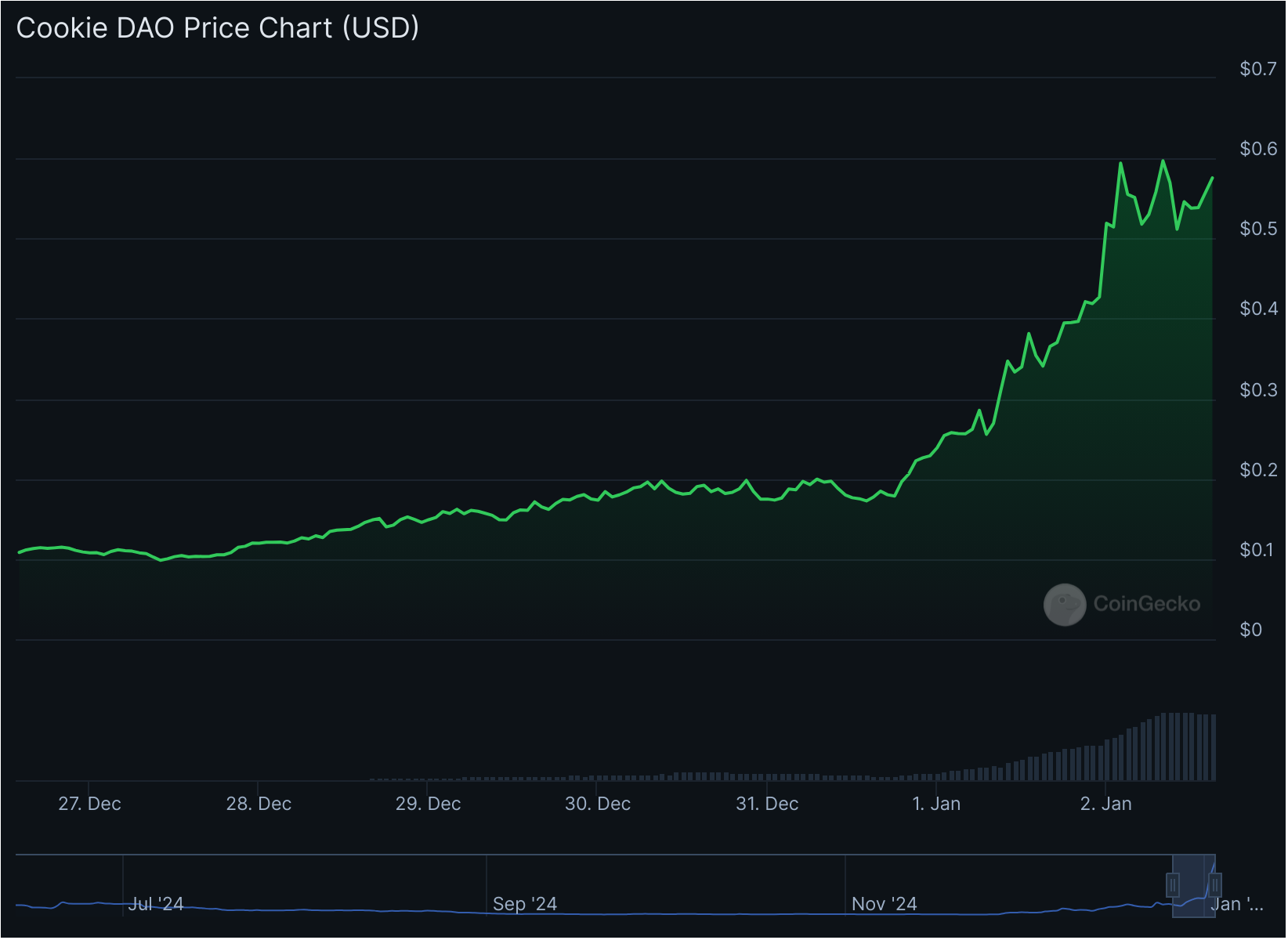COOKIE token jumps 420% this week as $14 million staked fuels surge
Key Takeaways
- COOKIE token saw a 420% increase in value this past week, with $14.3 million in staking.
- The launch of DataSwarm Framework and listing on Binance Alpha have fueled the token's growth.
COOKIE token surged 420% in the past week as staking value reached $14.3 million, according to CoinGecko data.
The token, trading at $0.59, jumped from $0.11 just days ago.

The digital asset, which powers the Cookie DAO protocol, has seen over 25.3 million tokens staked on its platform.
The protocol requires 10,000 tokens for access to its v0.3 data infrastructure, which aggregates AI agent indexes.
Last week, the COOKIE token made waves in the crypto market following its listing on Binance Alpha, a new feature within Binance Wallet designed to showcase early-stage crypto projects with growth potential.
Disclaimer: The content of this article solely reflects the author's opinion and does not represent the platform in any capacity. This article is not intended to serve as a reference for making investment decisions.
You may also like
After bitcoin returns to $90,000, is Christmas or a Christmas crash coming next?
This Thanksgiving, we are grateful for bitcoin returning to $90,000.

Bitcoin security reaches a historic high, but miner revenue drops to a historic low. Where will mining companies find new sources of income?
The current paradox of the Bitcoin network is particularly striking: while the protocol layer has never been more secure due to high hash power, the underlying mining industry is facing pressure from capital liquidation and consolidation.

What are the privacy messaging apps Session and SimpleX donated by Vitalik?
Why did Vitalik take action? From content encryption to metadata privacy.

The covert war escalates: Hyperliquid faces a "kamikaze" attack, but the real battle may have just begun
The attacker incurred a loss of 3 million in a "suicidal" attack, but may have achieved breakeven through external hedging. This appears more like a low-cost "stress test" targeting the protocol's defensive capabilities.

